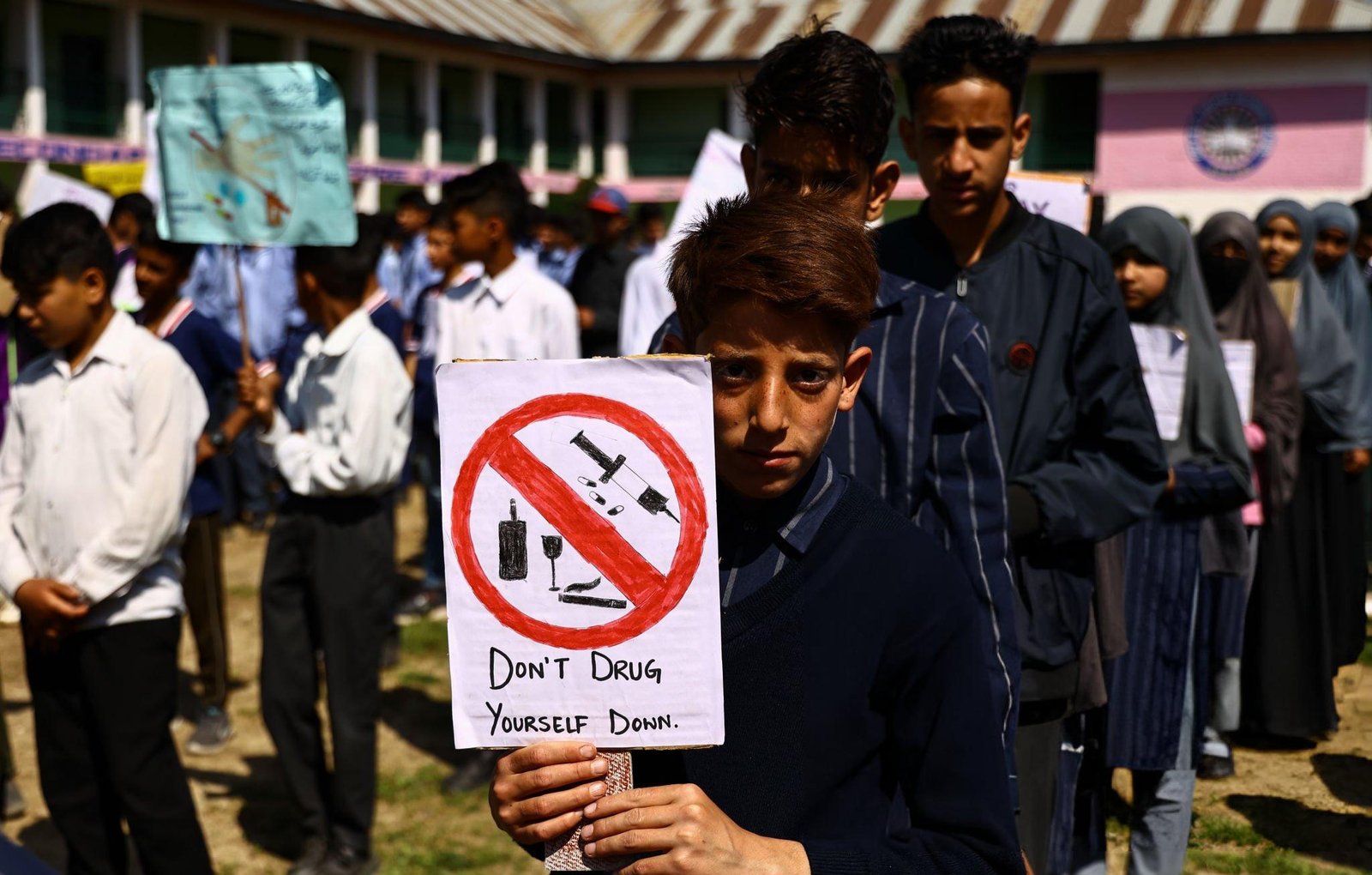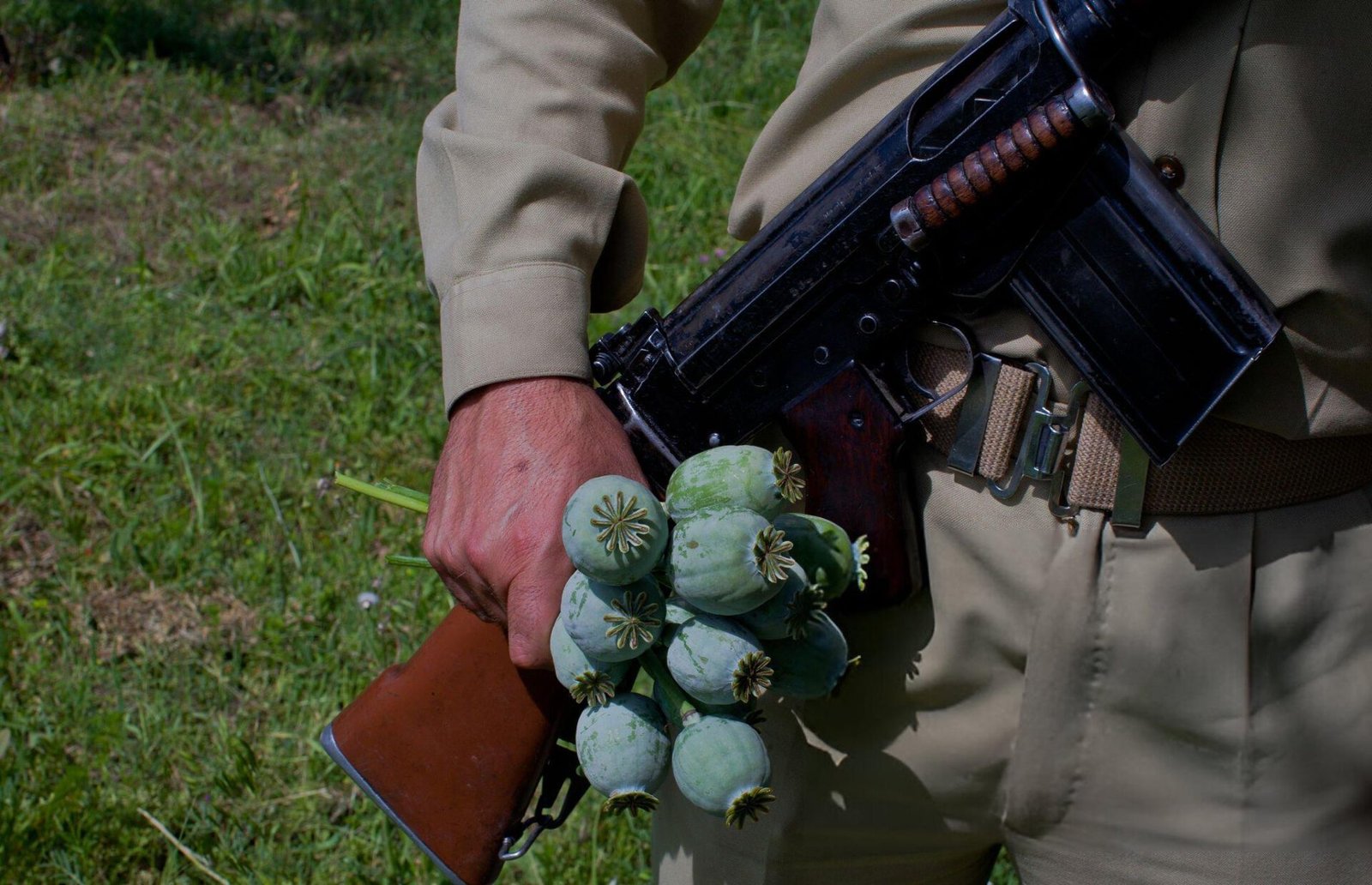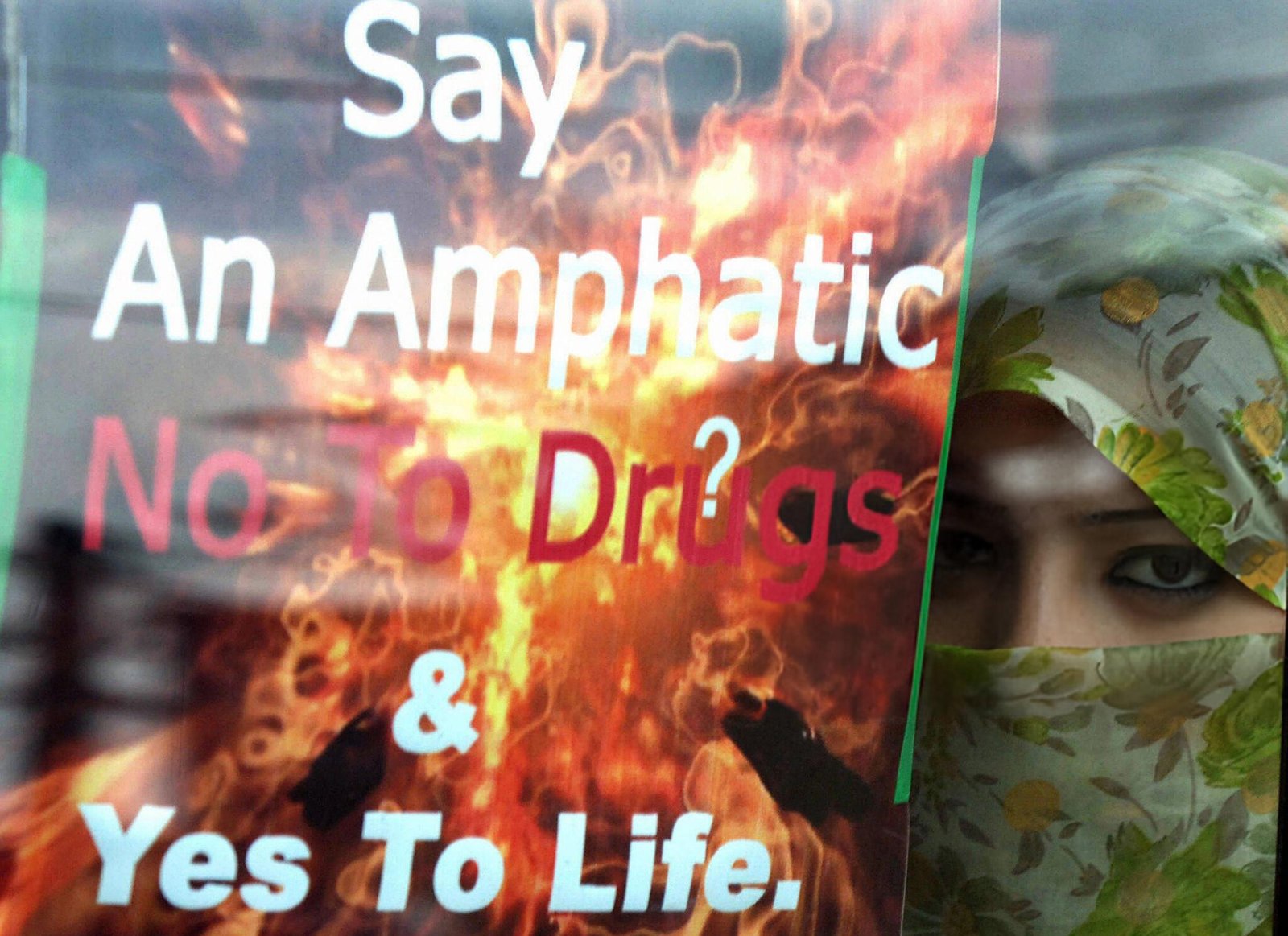Drug Abuse in Kashmir: A Growing Crisis Affecting Youth, Health, and Economy.
-
by
admin
- No Comments on Drug Abuse in Kashmir: A Growing Crisis Affecting Youth, Health, and Economy.
The Silent Epidemic of Drug Addiction in Kashmir
Kashmir—where beauty meets resilience, but its youth must be saved from the shadows of addiction.
Smiles to Miles
Kashmir, known for its breathtaking landscapes, is battling a rising drug addiction crisis among its youth. What was once a region of cultural heritage and natural beauty is now seeing an alarming increase in substance abuse, heroin addiction, and drug-related deaths.
According to a study by the Institute of Mental Health and Neurosciences (IMHANS) Srinagar, over 10 lakh people in Jammu & Kashmir (J&K) suffer from drug addiction, with a sharp rise in heroin use among young people. This has had devastating consequences on health, the economy, and the future of Kashmir’s youth.
In this blog, we’ll explore the history of drug addiction in Kashmir, its impact on youth health, the economy, and early deaths, and possible solutions to combat this crisis.
History of Drug Addiction in Kashmir
For decades, Kashmir was not known for widespread drug abuse. Traditionally, the most commonly used substances were alcohol and cannabis. However, in recent years, a shift toward hard drugs like heroin, opioids, and synthetic drugs has been observed.
Factors Contributing to Drug Addiction in Kashmir:
-
Conflict and Political Instability – Prolonged unrest has led to stress, trauma, and mental health disorders, making youth vulnerable to substance abuse.
-
Easy Availability of Drugs – Smuggling of heroin and opioids from Pakistan and Afghanistan has fueled drug addiction in Kashmir.
-
Unemployment and Frustration – A high unemployment rate in J&K (over 20%) pushes young people towards drug use as an escape.
-
Peer Pressure and Urbanization – With changing lifestyles and increased exposure to urban drug culture, many young people fall into addiction.
According to the Crime Branch of J&K Police, around 52,000 youth in Kashmir are addicted to heroin, with many spending ₹80,000-₹1,00,000 per month to sustain their drug habits.

Impact of Drug Abuse on Youth Health
Substance abuse is leading to a severe health crisis in Kashmir. The rise in heroin addiction and intravenous drug use (injecting drugs) has resulted in dangerous health conditions, including:
1. Mental and Psychological Health Issues
-
Increased depression, anxiety, and PTSD among young addicts.
-
High suicide rates among substance abusers.
-
Impaired cognitive function, memory loss, and aggression.
2. Rise in Infectious Diseases
-
72% of IV drug users in Kashmir have Hepatitis C, according to IMHANS.
-
HIV/AIDS cases are rising due to shared needles and unsafe drug use.
-
Drug addiction weakens the immune system, making individuals prone to chronic infections.
3. Increase in Overdose and Early Deaths
-
Drug overdose deaths have increased significantly over the last five years.
-
Many youth die before the age of 30 due to long-term drug abuse.
-
The risk of sudden cardiac arrest, liver failure, and respiratory collapse is high among heroin users.
The lack of drug rehabilitation centers and mental health support further worsens the crisis.
Economic Impact of Drug Addiction in Kashmir
The drug crisis is crippling Kashmir’s economy, leading to:
1. Loss of Workforce Productivity
-
Young people addicted to drugs fail to contribute to society and struggle with employment.
-
Businesses and industries suffer due to a lack of skilled and healthy workers.
2. Financial Drain on Families
-
Many families spend lakhs on drug treatment and rehabilitation.
-
Drug-dependent youth often resort to theft and illegal activities to sustain their addiction.
3. Burden on Healthcare System
-
The government is forced to spend millions on drug de-addiction programs and mental health services.
-
Hospitals are struggling with increased cases of drug overdose and mental disorders.
Without urgent intervention, drug addiction will continue draining Kashmir’s economy and affecting its long-term growth.
How to Combat Drug Addiction in Kashmir?
The fight against drug abuse in Kashmir requires a multi-faceted approach, including awareness, rehabilitation, and policy enforcement.
1. Strengthening Drug De-Addiction and Rehabilitation Centers
-
More rehab centers should be established across J&K.
-
The government must provide affordable and free de-addiction services to families in need.
-
Counseling and mental health support should be made easily available.
2. Awareness and Prevention Campaigns
-
Schools, colleges, and communities should hold awareness programs on the dangers of drug abuse.
-
Parents and teachers must be trained to identify early signs of addiction in children.
3. Strict Action Against Drug Trafficking
-
Stronger border security is needed to stop the illegal drug trade from Afghanistan and Pakistan.
-
Strict anti-drug laws and tougher punishments for drug peddlers and suppliers must be enforced.
4. Employment and Skill Development for Youth
-
The government should create more jobs to reduce frustration among youth.
-
Skill development programs can help youth find meaningful careers and avoid substance abuse.
5. Community and Religious Involvement
-
Mosques, temples, and churches can play a vital role in educating youth about the dangers of drugs.
-
Local leaders and social organizations must work together to support rehabilitation programs.
A Call to Action Against Drug Abuse
The drug epidemic in Kashmir is a ticking time bomb that threatens the health, economy, and future of its youth. Urgent action is needed to stop the rise of drug addiction, improve rehabilitation facilities, and create better economic opportunities for young people.
At Smiles to Miles Foundation, we are committed to:
✅ Raising awareness about drug abuse through educational programs.
✅ Providing counseling and support for drug victims and their families.
✅ Working with communities and policymakers to tackle the drug crisis.
🚀 Join us in this fight against drug abuse. Let’s save Kashmir’s youth and build a healthier future.






